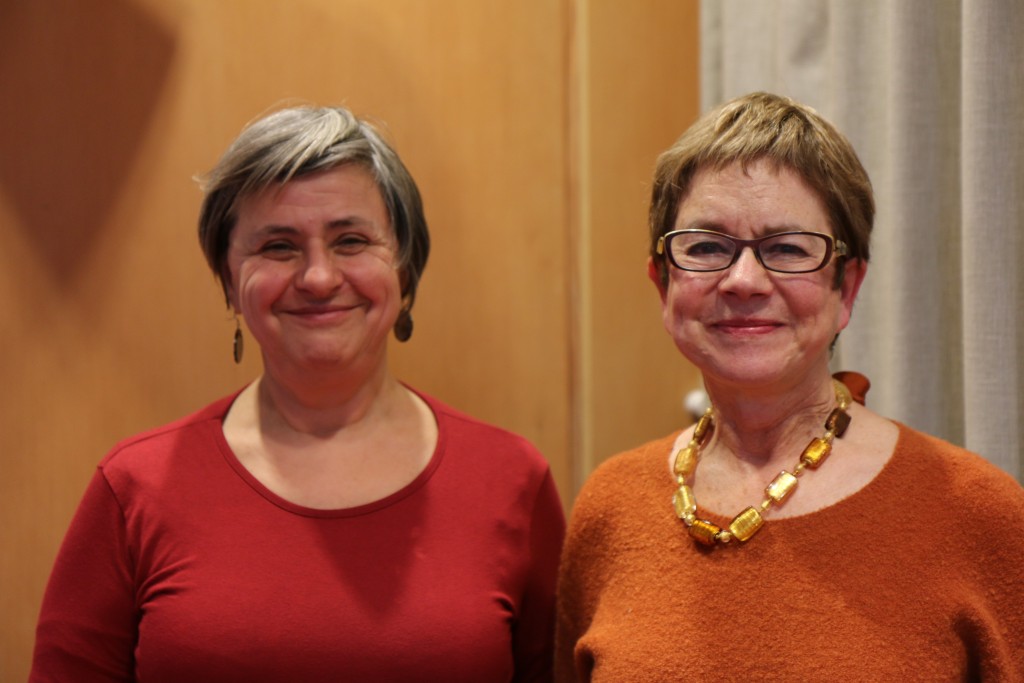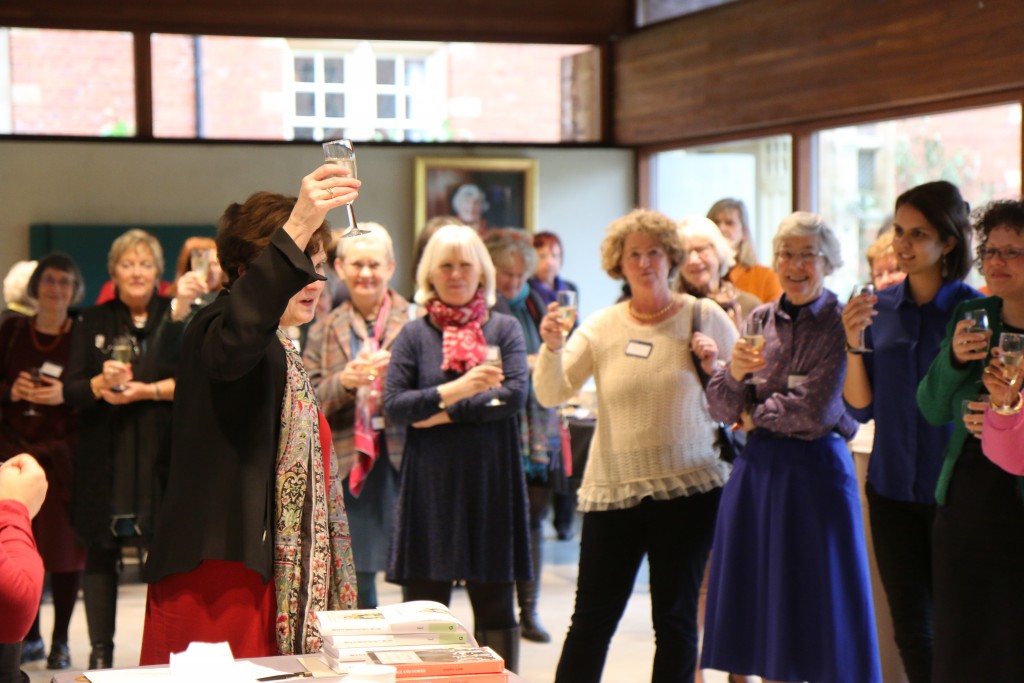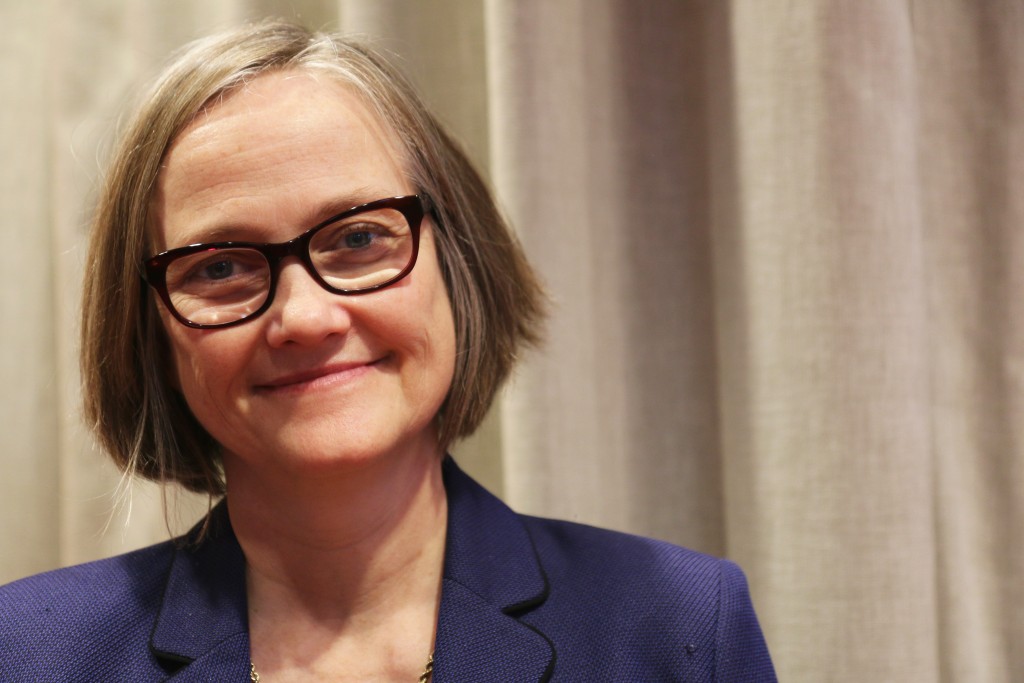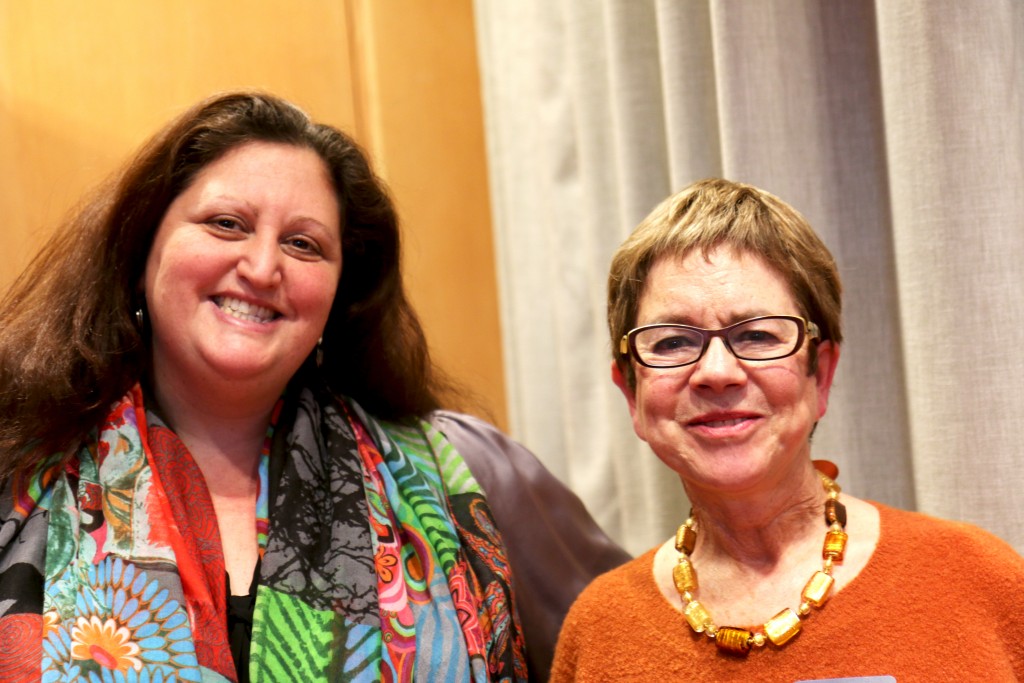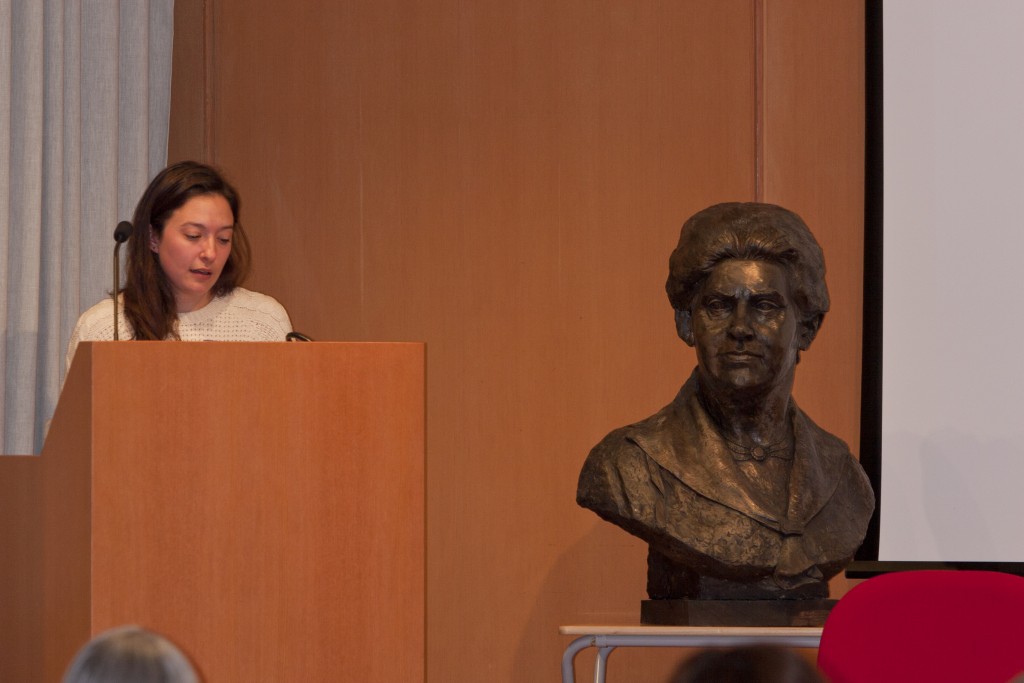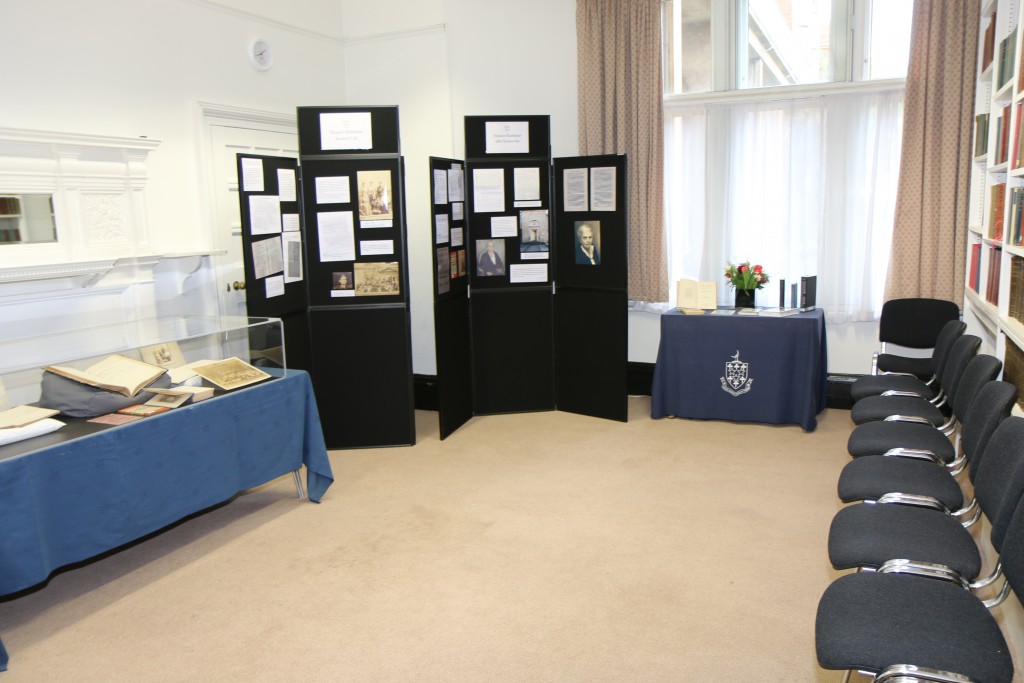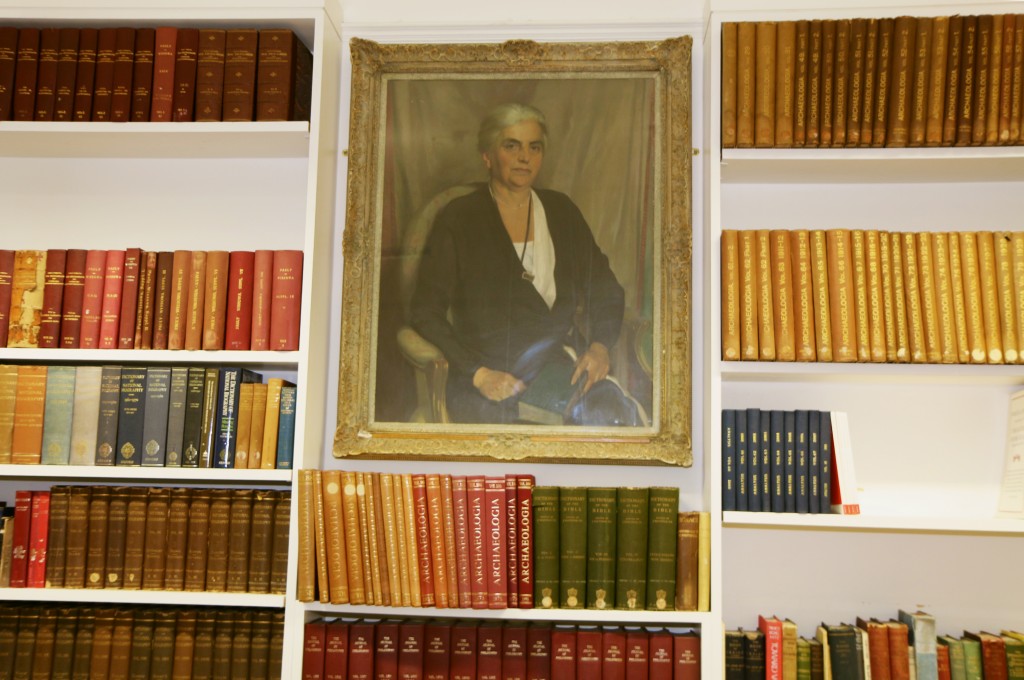 On the 22nd of January, Somerville College hosted a symposium to commemorate the 70th anniversary of Eleanor Rathbone’s death. Organiser and co-founder of the ‘Remembering Eleanor Rathbone Group’, Dr Susan Cohen, reflects on the day.
On the 22nd of January, Somerville College hosted a symposium to commemorate the 70th anniversary of Eleanor Rathbone’s death. Organiser and co-founder of the ‘Remembering Eleanor Rathbone Group’, Dr Susan Cohen, reflects on the day.
When I first met Dr Alice Prochaska in April 2015 to tentatively discuss the idea of Somerville hosting an event in 2016, to commemorate the 70th anniversary of Eleanor Rathbone’s death in January 1946, I confess I had no idea what the outcome would be. Now, reflecting on Friday 22 January, and recalling the crowd of nearly seventy enthusiastic participants, including members of the Rathbone family and Somervillians, past and present, gathered in the Flora Anderson Hall, I am filled with amazement. The day was, by all accounts, a great success, and owed much to the involvement of our wonderful contributors, and especially our keynote speaker.
Once the idea of the symposium took root, and an approximate date decided upon, I speculatively contacted Professor Susan Pedersen, whose biography, Eleanor Rathbone. The Politics of Conscience provides the most insightful account of Eleanor’s life. I really didn’t hold out more than a glimmer of hope that she would be able to take up the invitation to be keynote speaker. After all, she lives and works in New York City, and has a packed academic schedule. Here serendipity played it’s part, for the coincidence of her possible participation in a conference at Cambridge University in early January, extended to encompass research in Edinburgh, was key in enabling her to join us, and to get the symposium off to a magnificent start.
Her presentation was illuminating and thought provoking, as she spoke about the three significant but ‘vanished’ women in Eleanor’s life, namely her mother, her half-sister and her lifelong companion, Elizabeth Macadam, each of whom, in their own way, made her independence possible. The contributions that followed either shed light on a specific aspect of Eleanor’s life and work, or made a connection between her and other public figures.
Women’s equality was at the heart of much of her activism, and was addressed in two papers, the first by Dr Cheryl Law, ‘Where does Equality Lie?’, which addressed the struggle between the ideals of the ‘old’ feminism once the suffrage principle for women was established in 1918, and the ‘New’ feminism, led by Rathbone as President of the National Union of Suffrage and Equal Citizenship from 1919.
The other, presented by Dr Sumita Mukherjee, was concerned with the friendship between Eleanor and the Indian feminist and Somerville alumnus, Radhabhai Subbarayan. We heard about their joint campaigns on Indian female franchise in the early 1930s, and the ways in which they confronted Indian criticism of their policies. Poverty and social reform were at the heart of Hugh Gault’s contribution, which looked at the similarities and differences between Eleanor’s views and those of her fellow MP, and some time Chancellor of the Exchequer, Howard Kingsley Wood.
Eleanor’s great achievement, the introduction of family allowance paid to mothers, was the subject of Professor Pat Thane’s paper, in which she examined the way this was finally implemented in 1945 and the route by which it was transformed into child benefit in 1977.
Dr Julie Gottlieb shifted the focus to Eleanor’s transition from domestic, feminist, and welfare issues to international affairs in the 1930s and to her support for Winston Churchill, with other leading women politicians, in opposing Britain’s foreign policy and especially appeasement.
Kerrie Holloway was concerned with Eleanor and her role during the Spanish Civil War, and argued that her connection between politics and humanitarianism aided the relief given by the National Joint Committee as she struggled to attack the root of the problem causing the humanitarian crisis rather than just relieve its effects.
My own contribution focused on Eleanor’s commitment to the refugee cause through the prism of a small cache of letters that passed between her, in her capacity as Hon. Sec. of the Parliamentary Committee on Refugees, and Tess Simpson, the secretary of the Society for the Protection of Science and Learning. Dating from mid 1940 -1942, these illustrated Eleanor’s activism on behalf of, and concern for, in this case, the large number of academics and scholars, many of them Jews, who were amongst the thousands of refugees classified as enemy aliens at the outbreak of war, and interned in Britain in May 1940.
Organising a timetable is inevitably tricky, and nobody really wants to be last on the list, but Dr Anne Logan’s presentation fitted the bill so well, for it brought together Eleanor and Margery Fry, who was not only her good friend and a fellow Somervillian, but was a former Principal of the College. Hearing about Fry’s international work and her contribution as a counterpoint to that of Rathbone’s, was the perfect way to end a thoroughly engaging day, barring a final cup of tea and piece of cake!
We did of course have a lunch break, when we drank a toast to Eleanor and to the room that has been named after her, where Dr Anne Manuel had set up a small exhibition. There was the additional bonus of a guided tour, by Frank Prochaska, of the John Stuart Mill library.
Organising the Remembering Eleanor Rathbone Symposium was a labour of love for Lesley Urbach and myself, the co-founders of the grandly named but purely voluntary ‘Remembering Eleanor Rathbone Group’. It was a huge learning curve, but was worth all the effort. Of course it would not have been possible without the generosity, enthusiasm, help and support of Dr Prochaska and Liz Cooke, as well as the events team at Somerville. The other vital component was the sponsorship from Rathbones Investment Management, Liverpool, for without this there would not have been endless reviving cups of tea, coffee and cakes, no Prosecco and no delicious buffet lunch to keep us going.
Somerville are justly proud of their first Member of Parliament, and there was nowhere better to start this year of commemorations than at her alma mater, even if Eleanor would have preferred to stay out of the limelight. She was more than evident on the platform, in a larger-than- life size cold-cast sculpture created by Philip Garrett, and brought to the event by Julian Rathbone. Perhaps money can be raised to commission a smaller version, as a permanent reminder at Somerville of this remarkable woman.
For those of you who missed the day, a selection of papers will be published in a special ‘Eleanor Rathbone’ edition of Women’s History later this year. There are many more exciting events planned for 2016, details of which can be found on the Remembering Eleanor Rathbone website , so please join us again.
For more photos from the event, please see the event page.
